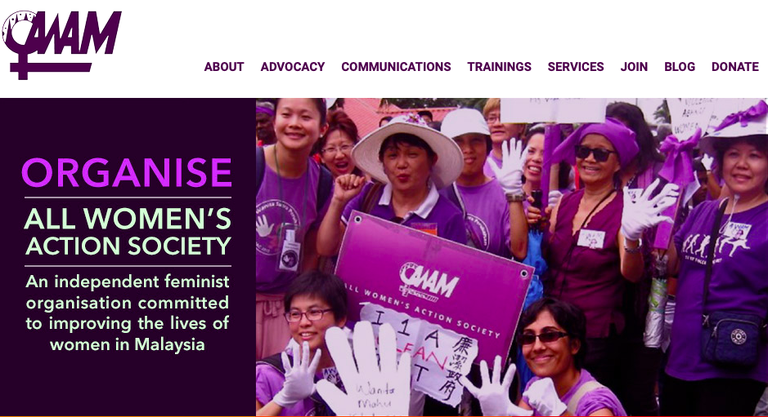
Monitoring Censorship of Gender-Related Online Content
The Sinar team added new URLs to the Malaysian Citizen Lab test list, with the intention of monitoring the availability of gendered content online. The links included information, resources and services related to women’s health, sexual education, gender based violence and women’s rights.

Over the next few months, Sinar Project will be conducting a community social audit to measure non-technical gaps in Internet access [see our previous blog post here]. The audit will pay particular attention to barriers to women’s Internet access and use. The digital gender gap has yet to be assessed in Malaysia, however international research reveals that poor urban women are 50% less likely to be connected to the Internet than men [Women's Rights Online Digital Gap Audit].
Our research will focus on measuring non-technical barriers to Internet access, however we will also be measuring technical barriers, such as connectivity to sites and network interference or censorship. Sinar Project has made ongoing contributions to the Malaysian Citizen Lab test list - a URL testing list intended to help in monitoring Internet censorship, containing URLs with content that is deemed to be provocative, socially sensitive or objectionable. The Sinar team recently added 12 URLs to the Malaysian Citizen Lab test list, which relate to women’s rights, gender-related advocacy and gender resources/services. We want to monitor the availability of gendered content online, such as information, resources and services related to women’s health, sexual education, gender based violence and women’s rights.
An example of a website which we added to the test list is awam.org.my, the site of All Women’s Action Society (AWAM). AWAM is a self-described “feminist organization committed to improving the lives of women in Malaysia”; they engage in advocacy and provide important services to women (such as counselling, legal information and case management). Additionally, we added URLs related to reproductive health rights and family planning. For example, we are now monitoring rraam.org, the website of the Reproductive Rights Advocacy Alliance Malaysia, which advocates for women’s right to improved abortion and contraceptive services.


We found that gender-related URLs can no longer be categorized under “Women’s Rights” on Github. In 2017, the categories “Human Rights”, “Minority rights and ethnic content”, “Women’s Rights” and “Minority Faiths” were merged into one general category called “Human Rights Issues”.
According to the Category Codes legend, the “Human Rights Issues” category covers “sites dedicated to discussing human rights issues in various forms. Includes women's rights and rights of minority ethnic groups”. The merging of the Women’s Rights category with the general Human Rights category is significant because it limits the potential to easily monitor censorship of gendered online content using Citizen Lab test-lists. Category codes are necessary to be able to report on the censorship of particular types of online content; without a Women’s Rights category, it is difficult to track censorship of online content related to women’s rights and women’s priorities, more generally.
We are currently identifying gender-related URLs through the use of keywords in the “notes” section of the URL test list.
See the Sinar Project fork of the Malaysian Citizen Lab test list here: https://github.com/Sinar/test-lists
Related Content
How we are using Citizen Lab Test Lists to generate reports and also for OONI testing:
Researching the Digital Digital Divide:
https://sinarproject.org/digital-rights/updates/researching-the-digital-gender-gap-in-subang-jaya
Contributing
You can help us monitor access to Malaysian gendered resources by:
- adding URLs/updating the Malaysian Citizen Lab test list here: https://github.com/Sinar/test-lists
- Installing the OONI Probe app on your phone and running this link
Download the OONI Probe App:
About
The Internet Access Gap Audit is a social audit to research and measure the digital gender gap and other non-technical gaps in Internet access. The social audit aims to verify how programmes and services are being carried out, and to expose realities that are not being acknowledged or addressed. The ultimate goal is to make services more reflective of community priorities and needs.
The Malaysian Government has initiatives intended to improve Internet affordability and access, such as free community Internet access points and community Internet facilities. However, until now, there has been almost no research done on the reliability of Internet provided by these facilities, nor on the gender gap of Internet access.Through this social audit, Sinar Project will compare government commitments and statistics to realities on the ground.
We are analysing existing secondary data with the help of the World Wide Web Foundation’s Digital Gender Gap Audit Scorecard Toolkit — a tool which was created to develop evidence and monitor country progress towards closing the digital gender gap. We are researching data and policy commitments related to: Internet affordability; digital skills and education; relevant content and services for women; online safety; and women’s empowerment through Internet access.
Want to learn more?
Sign up for our new monthly newsletter to receive updates on our work, partners, upcoming events and opportunities for civic tech and digital rights.
Sign up by clicking here
